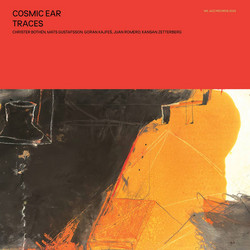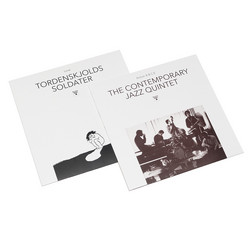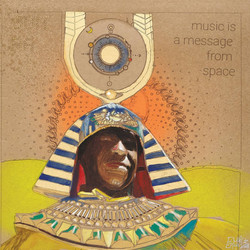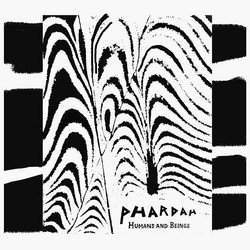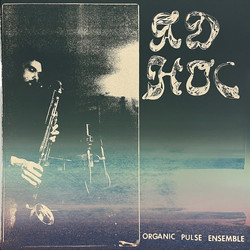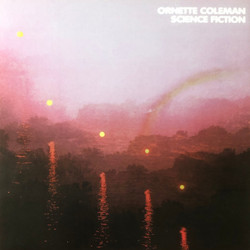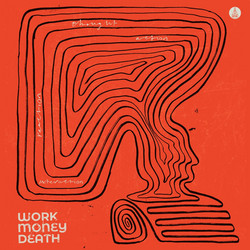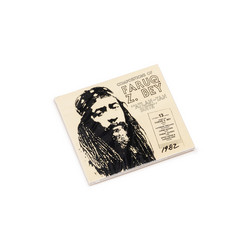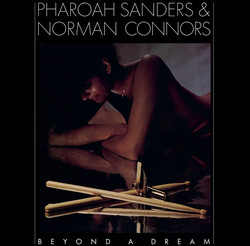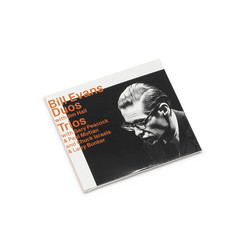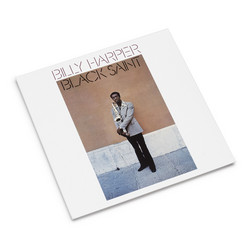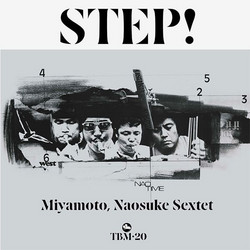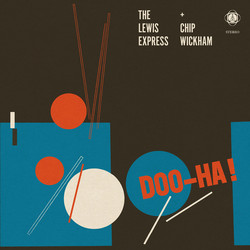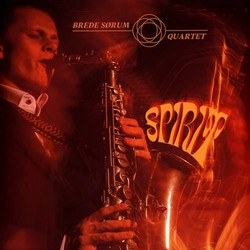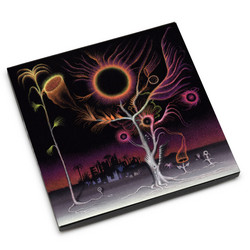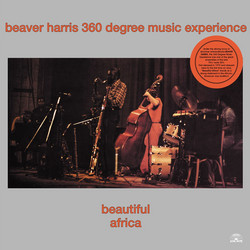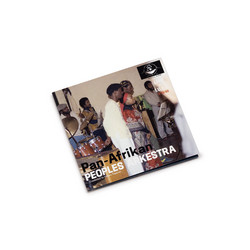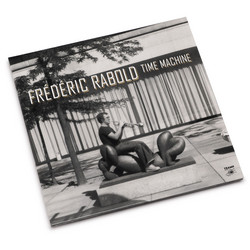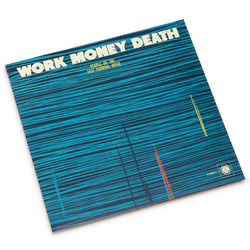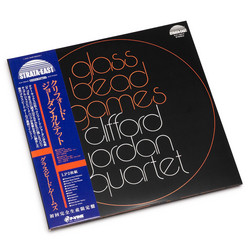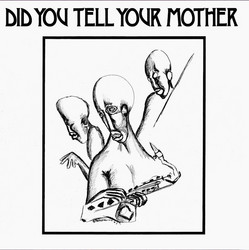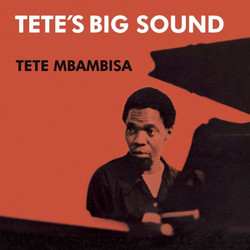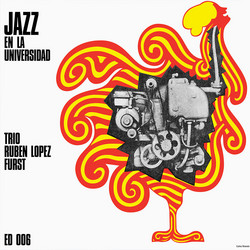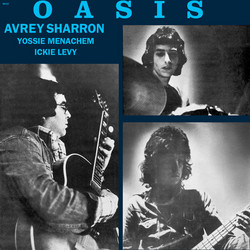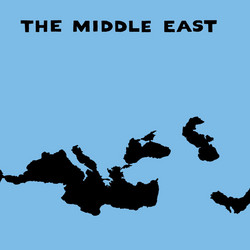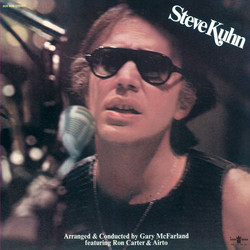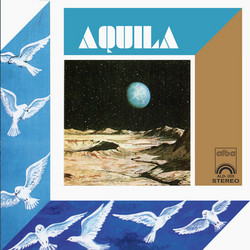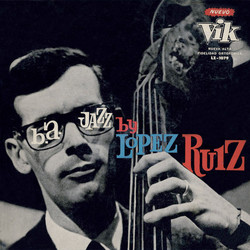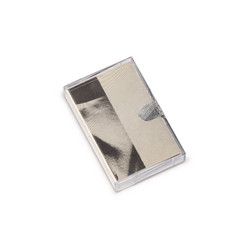Tete Mbambisa
Did You Tell Your Mother (LP)
Heavyweight Vinyl / U.S.A. Original Glued Prints on Thick Cardboard / handily gluing / Original Black and White Private Press artwork. If ever there was a post-war country that needed the freedom sounds of jazz, it was South Africa. A state that was so explicitly racist, it could make 1920s Mississippi look like a rainbow nation of multicultural joy. The policy of apartheid was a political and social system established in South Africa in 1948 during the era of white minority rule. The word itself means "separateness" in the Afrikaans language. It enforced racial discrimination against non-Whites-mainly focused on skin colour and facial features-and was a violent, cruel and oppressive system of control. During apartheid era (1948-1994), people were divided into four racial groups and separated by law. The system was used to deny many basic rights to non-white people-principally black people- who had to carry special passes or have permission to travel outside their designated area, or work in particular areas reserved for whites. The government separated mixed communities and forcibly moved many people from ancestral or tribal lands. Interracial marriage was outlawed; black people could not own land in white areas or vote. Within this living hell jazz became a crucial vector for self-determination, political protest and artistic expression. Key musicians and composers emerged who became guiding lights for the anti-apartheid campaign and gain international reputations at a time when the struggles in South Africa found common cause with the civil rights movement the United States. Trumpeter Hugh Masekala and pianist Abdullah Ibrahim (Dollar Brand) were two break out figures that emerged from the same group, the Jazz Epistles, one of the first South African bebop groups. The Epistles were closely followed by the Blue Notes, led by white pianist Chris McGregor, who were among the leading modern jazz groups shaping the South African jazz scene of the late 50s and early 60s. An early use of jazz as an anti-apartheid tool was the 1959 musical theatre play 'King Kong', that featured music by many South African jazz musicians, including all the members of the Jazz Epistles.
Written as a social commentary on young black South Africans, 'King Kong' was an important marker in proving that music-and jazz in particular-could be an effective vehicle for political and social expression within the oppressive political apparatus that was apartheid. In 1960, following the Sharpeville Massacre in which 69 demonstrators were shot dead by police (29 of them children, many shot in the back), censorship was dramatically increased by the apartheid government, which led to the shutting down of all venues and events that catered to or employed both black and white individuals. Gatherings of more than ten people were also declared illegal. As a result, a mass exodus of jazz musicians was created with many leaving South Africa seeking work overseas. Among these were The Blue Notes (who toured Europe before ending up in London), Abdullah Ibrahim and his wife, jazz vocalist Sathima Bea Benjamin, trumpeter Hugh Masekela, and vocalist Mirian Makeba.
Into this febrile atmosphere emerged Tete Mbambisa, born in East London, Eastern Cape, in 1942. A self-taught pianist, as a teenager he founded two vocal groups, the Four Yanks (in which Dudu Pukawna was pianist) and the Junior Four Yanks, a group that included lead singer Johnny Dyani before he later became bass player for The Blue Notes. Mbambisa first gained prominence as a pianist in 1961 as a member of the Jazz Giants, this time with Pukwana as saxophonist, bassist Martin Mgijima and drummer Makaya Mtoshoko, setting the sound and shape of a scene that became known as Cape Jazz. Following an introduction from Chris McGregor, Mbambisa formed a band, The Swinging City Six, with saxophonist Ronnie Beer before going on to play at the end of the 1960s in the groups The Soul Jazzmen and Spirits Rejoice with Duku Makasi. As a member of The Soul Jazzmen, Mbambisa recorded the breakthrough album 'Inhlupenko Distress' in 1969 for the City Special label. After a recording hiatus, Mbambisa returned in 1974 with an octet album, 'Tete's Big Sound' released on a newly formed label, As Shams or The Sun, established by South African record store owner and independent producer Rashid Vally. 'Tet's Big Sound' included tracks like 'Unity' and the 'Black Heroes Lamentation', now considered a classic in the South African jazz underground. The sound that Mbambisa carved in this period was wholly acoustic, and is a style that now is often loosely labelled spiritual jazz, a sound that alludes to deep African textures and rhythms balanced with clear nods to American hard bop and modal jazz, sometimes edging toward free improvisation in echoes of John Coltrane and Pharaoh Sanders. The music is often centred around a fulcrum of trance like vamps with repeated motifs that allow for extended pieces that create a hypnotic effect. This clearly exemplified on Mbambisa's next album, 'Did You Tell Your Mother', released in 1979, once more for The Sun label.
